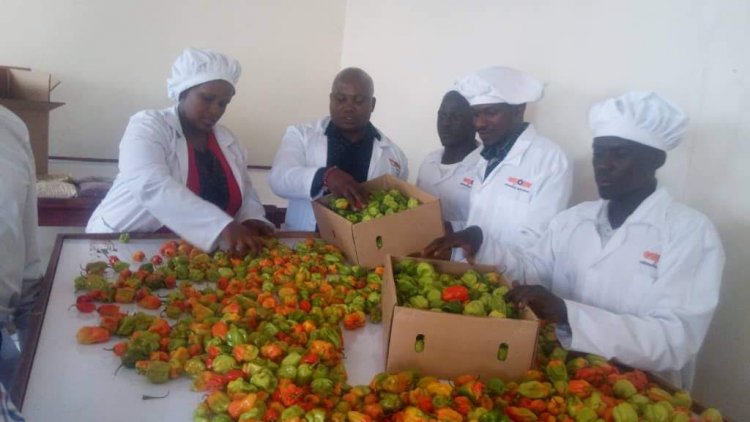Empower East Africa embarks on supporting fruits and vegetables farmers to boost exports.
Using internally generated resources, Empower East Africa has so far benefited nearly 8700 households through provision of hybrid seeds, organic fertilizers and buying the products for export

Over the years, Empower East Africa has been supporting farmers in horticulture to strengthen their capacity in ensuring quality production to promote the sub-sector as a commercial business of export demand driven products. The efforts are aimed at market growth, sustained incomes of producers and their employees, while contributing to increased economic development, reducing poverty among other benefits.
Through their support to farmers including a training programme, provision of inputs, linkages, and market access, they are moving to rebrand agriculture with expanded quality production into Uganda’s export market of fruits and vegetables across all the value chain benefiting youth and women with capacity to be economically self-sustainable.
The main products being exported includes hot peppers, passion fruits, tomato (pulp), beet root, onions, okra, ginger, chilies, eggplants, mangoes among others

While speaking to the Managing Director, Empower East Africa, Lucky Guma Moses, in picture above with a partner, said that through supporting the farmers with training, provision of quality inputs, buying farmers produce and others from small scale, medium and large scale farmers, they have expanded production of fruits and vegetables to local and foreign market exports that are on international demand.
“Empower East Africa aims to rebrand agriculture through empowering smallholder, medium and large scale farmers to export demand driven agricultural products. We have cut a niche into Uganda’s export market of fruits and vegetables across all the value chain. Using internally generated resources, Empower East Africa has so far benefited nearly 8700 households through provision of hybrid seeds, organic fertilizers and buying the products for export” he said
He said that particularly the youth and women have been supported to improve the quality of the produce while they conduct market research and creating horizontal linkages to access funding, expertise and other quality inputs.
“We have also partnered up with companies that are in the seed and fertilizer business. We work with and guide farmers from start to finish to ensure compliance to international standards” he added

Farmers are trained in above picture with various skills including enterprise selection, harvesting and post harvest handling, storage and agro-processing, soil improvement and water management among others.
According to the latest data from the Bank of Uganda, Uganda’s fruit and vegetable exports maintained a growth curve amidst the pandemic in 2020, the country exported 83.5 million tons of fruits and vegetables worth $45 million in 2020 compared to 68.8 million tons worth $36 million in the previous year.
In a research conducted by a global research firm Allied Market Research, indicates that organic fruits and vegetables market is projected to reach $55.86 billion globally by 2027 owed to consumer awareness about healthy diet, increase in purchasing power and changes in lifestyle and food habits.
Data from Ministry of Trade shows that the horticulture sector alone accounts for 85 per cent by quantity of the total agricultural products shipped out of Uganda almost annually. These include fruits such as bananas, passion fruits, pineapples, avocados, baby mangoes and apples among others and vegetables such as hot pepper, eggplants, okra and chilies.
The sector is estimated to benefit 2.5 million people while 1.5 million households benefit from exports, border trade and domestic trade of fruits and vegetables.
Exports from the fruit and vegetable industry fetch about $100m per annum while cross border trade within the region is estimated at $55m per annum.












